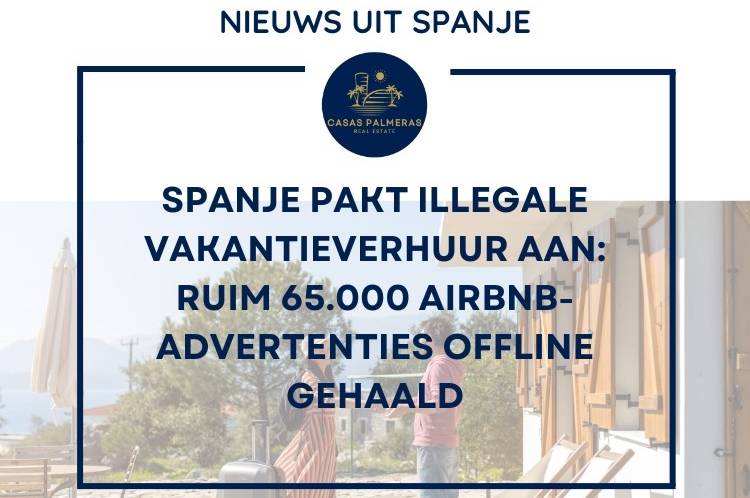Spain tackles illegal vacation rentals

Spain tackles illegal vacation rentals: over 65,000 Airbnb ads taken offline
Airbnb is under fire in Spain. The Spanish government has ordered the removal of more than 65,000 illegal tourist accommodations from the platform. The measure is in response to growing social unrest over mass tourism and housing shortages in popular cities and regions.
Illegal rentals under the microscope
The action focuses on six tourist regions: Madrid, Catalonia, Andalusia, Valencia, the Balearic Islands and the Basque Country. There, a large proportion of vacation rentals were found not to comply with local or national regulations. A total of 65,935 advertisements for entire homes offered without a valid license are involved - individual rooms fall outside this measure.
The Spanish Ministry of Consumo is acting on a ruling by the Supreme Court in Madrid. The first 5,800 ads have now been removed.
New national rules from July 2025
From July 2025, a new national registration system, the Ventanilla Única. This central database should bring order to the fragmented regulatory landscape. Registration of tourist rentals will then become mandatory.
Key points of the new legislation:
- Every tourist rental must be registered
- Unregistered properties risk fines or eviction
- Municipalities retain their own rules, but cooperate through the national system
- Inspections and enforcement are coordinated nationwide
To date, 18,104 applications have been received. Of those, 8,787 have been approved, 7,393 are pending and 1,924 have been rejected.
Why is Airbnb under fire?
Airbnb previously received multiple warnings from the Spanish government for:
- Lack of a valid registration number
- Lack of clarity about the type of landlord (private or professional)
- Use of forged or incorrect permits
- Incomplete information for tenants
After years of warnings, the government intervened, thanks in part to the Supreme Court ruling. Airbnb calls the ministry's approach "ineffective" and has announced legal action. The company claims that some ads do comply with the rules or fall under exceptions, such as seasonal rentals.
Other platforms, including Booking.com and Vrbo, are also being held accountable.
Regional figures: where is the problem greatest?
The most illegal ads are located in:
- Madrid: 15,695
- Catalonia: 12,512
- Andalusia: 11,568
- Valencia: 9,562
- Balearic Islands: 8,428
- Basque Country: 8,170
Research shows that in Madrid only 1,131 of the 16,000 homes surveyed have valid permits.
Political pressure and public outcry
Tackling illegal vacation rentals is part of a broader housing market strategy. In cities such as Las Palmas and Palma, opposition to tourism is growing because of rising rents and displacement of local residents. According to the Central Bank of Spain, in tourist regions, up to 50 percent of housing supply is used for vacation rentals or bought by non-residents.
The PSOE government is therefore working on a package of measures, including:
- Increasing VAT on tourist rentals from 10% to 21%
- New tax on home purchases by non-EU citizens
- Increase in IBI tax on vacant properties
- Tax breaks for landlords of affordable housing
- Transfer of state land for social housing development
The legislation is expected to be debated in parliament in June 2025.
What does this mean for landlords?
Those who are in the tourist rental business in Spain need to prepare well:
- Check and register your property before July 2025
- Indicate correctly whether you are a private or professional landlord
- Ensure transparency in your listings
- Keep track of local and national regulations
The government expects platforms such as Airbnb to monitor compliance more strictly. Those who do not follow the rules risk fines or removal from listings.
Holiday rental Spain Airbnb Taxes Spain









